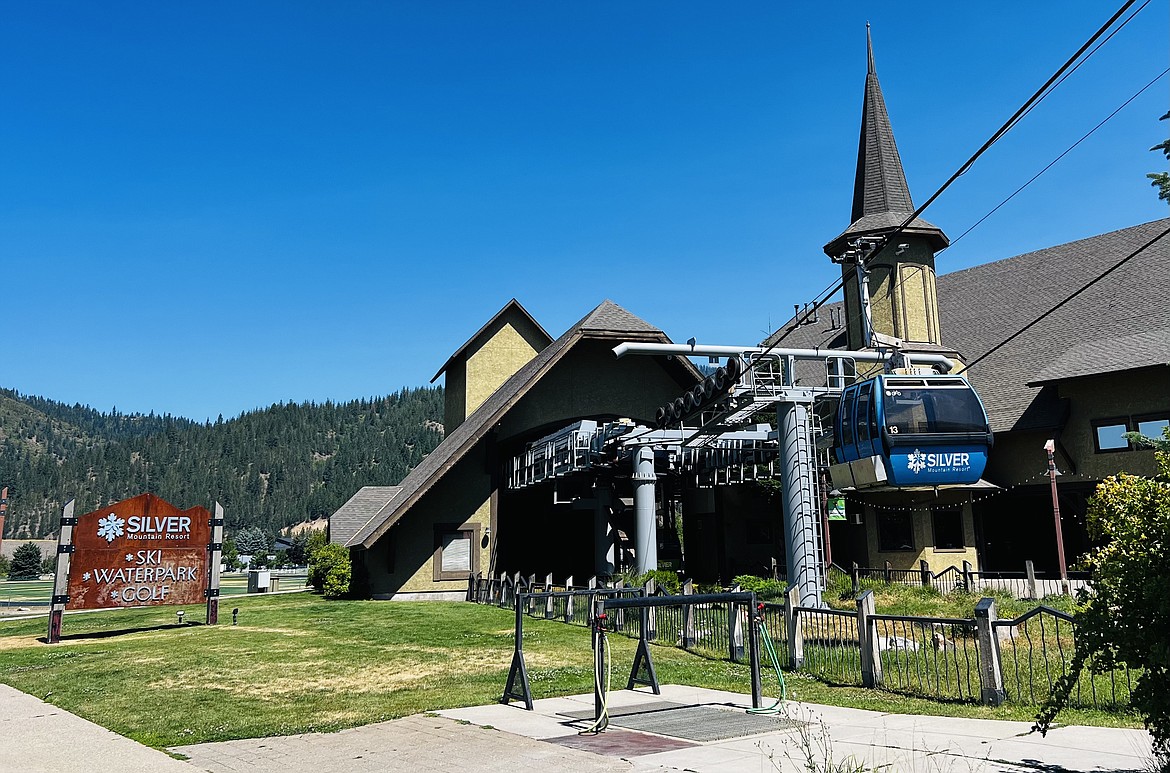Shoshone County declared the winner in legal battle with Silver Mountain
KELLOGG — After nearly six years of litigation and multiple levels of appeals, Shoshone County has emerged victorious in its tax appeal fight against Silver Mountain Resort.
In December of 2022, the matter was sent back to the District Court and Judge Rich Christensen, who had been directed by the Idaho Supreme Court to retry the matter after they overturned the decision from the Idaho Board of Tax Appeals, who had concluded that the disputed resort properties in total were worth far more than previously determined.
Shoshone County Prosecuting Attorney Benjamin Allen likened the entire dispute to a heavyweight boxing match that went the distance, as each party took turns throwing its heaviest punches at one another while they absorbed the blows and reloaded for their next attack.
The end result was Shoshone County squaring up with Silver Mountain to the tune of $182,000.
However, due to the County being declared the winner in the matter, Silver Mountain was responsible for paying the costs of the litigation — roughly $83,000.
How does Shoshone County owing the Kellogg-based ski resort nearly $200,000 constitute a victory?
That question can be answered by examining the history of the resort’s property valuation.
In 2016, Tryg Fortun purchased Silver Mountain Resort for $5 million from previous owners Jeld-Wen Holdings as part of a distressed sale.
In July 2017, Fortun appealed the county assessor’s appraised $22 million value of the property, believing that the appraised value should fall in line with the price he paid for it. However, under the previous ownership, the property value hovered right around that $22 million figure and was, reportedly, never scrutinized.
The matter initially went before the Shoshone County Board of Equalization, who decided to uphold Shoshone County Assessor Jerry White’s valuation – that decision was appealed by Fortun who petitioned the state to make their own determination.
In May 2018, the Idaho Board of Tax Appeals (BTA) determined that the resorts properties, which include the skill hill, gondola, condominium units, water park, and golf course were only worth $6,310,000 — a far cry from the $22 million that was assessed.
The county subsequently appealed that determination, which brought the matter before a judge.
After several months of litigation and delays due to the COVID-19 pandemic, an agreement was reached between the two sides that the combined properties were worth approximately $9.2 million on average from 2018 to 2020.
While the litigation process ran its course, and until an official decision was rendered that couldn’t be appealed was in place, Silver Mountain was required to pay their taxes according to the $22 million valuation.
In 2021, the Shoshone Board of County Commissioners authorized the first repayment from the overpayment, roughly $250,000 that came from the coffers of several different taxing entities including the Cities of Kellogg and Wardner, the West Shoshone Hospital District, Shoshone County Fire District No. 2, Kellogg Joint School District 391, and Shoshone County.
The final number that was landed on for valuation was just under $15 million and was both a figure that was determined by Silver Mountain’s property experts and proffered by the county, even though it was $7 million less than what White had assessed.
Allen went on to discuss how the decision by the district court could be further impactful to the residents of Shoshone County and even beyond.
“As impactful as the actual valuations, in this case, may have been to the taxpayers of Shoshone County, the case was perhaps equally important to other counties around the state for its important legal principles,” Allen said. “The Supreme Court decision reaffirmed and strengthened the principle that a tax appeal to the district court should be treated as a new case with no deference given to the decisions of the BTA. Another concept that was implicitly affirmed during the case is that market value cannot be determined solely from a recent sale of the property. As opposed to the sale of residential properties, in situations involving unique properties such as ski resorts and water parks, a sale should not establish market value.”
Silver Mountain, even in what was determined to be a defeat, was able to find a middle ground with the county – something Allen believes to be beneficial as both parties move forward.
Allen also lauded the litigation system itself, acknowledging that while it has its flaws, when a situation arises that requires it, it works.
“There are times when reasonable people acting in good faith cannot resolve a case without the help of the courts. Unlike many cases of litigation, the parties and their attorneys here shared a tremendous amount of respect for each other and what each side does for the community,” Allen stated. “There are no guarantees with our judicial process and sometimes the wrong decision is even made. But with processes of discovery, a fair trial before an unbiased judge, and full rights of appeal for government entities in civil cases, our system of justice can be as good as any in its search for a just result.”
Silver Mountain representatives declined to comment on the matter.

